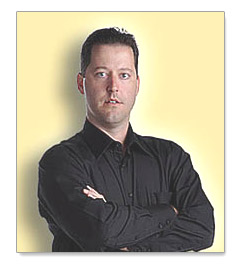Deposition Taking From An Attorney`s Perspective
Recently I sat down with one of Orange County`s best personal injury attorneys, Stephen D. Counts. Mr. Counts specializes in personal injury particularly as related to motor vehicle accidents. It is in this capacity that he has conducted or been a part of billions of depositions. That`s billions with a B. Okay, I exaggerate. Still, he is highly experienced and -- as it turns out -- generous with his time regarding the deposition aspect of his profession. He`s got great insights from the other side of the desk that I hope my court reporting readers will benefit from. Enjoy! 
Stephen D. Counts, Esq.
Personal Injury Lawyer
stephen@orangecountyinjury.com
Todd Olivas: As an attorney, do you do depositions?
Stephen Counts: Probably one or more a week.
Todd Olivas: How many have you done, approximately, in your career?
Stephen Counts: It`s almost impossible for me to estimate how many I`ve done during my career as an attorney, but if you extrapolate that out, I probably have done -- I probably do thirty, forty a year. And that includes ones that are taken by me as well as ones that I participate in that were noticed by another party.
Todd Olivas: And you specialized in personal injuries, so all of yours have been -- well, most of yours have been people who have been hurt; correct?
Stephen Counts: Virtually all of my clients are consumers who have been injured as a result of a wrongdoing of somebody else.
Todd Olivas: So you spend a lot of time in the deposition arena and you might have some opinions about the process, or feedback from a third party`s perspective -- has the volume of depositions gone up or down in the last few years for you?
Stephen Counts: For me personally, I probably have done more depositions in the past year than I did two or three years ago. And I think the reason for that is just the type of cases that I`m handling require much more in-depth discovery. Multiple eyewitnesses, multiple expert witnesses, multiple parties even -- I may represent two or three people involved in a claim.
Todd Olivas: And do you anticipate that trend decreasing in the future at all?
Stephen Counts: It`s difficult to know for sure, but my estimate would be that they will continue to gradually increase with the level of complexity of the cases as well as the quality of cases and -- for better, for worse -- the significant nature of the injuries involved.
Todd Olivas: How long do your depositions usually go? Is there an average and a range?
Stephen Counts: Well, there is definitely a range. It`s a very wide range. And a lot of it depends on whether it`s an expert deposition, whether it`s a party deposition -- a third party deposition for my practice. I don`t believe I`ve ever taken a deposition that was less than an hour, and I`ve taken depositions that last for more than a day and going through multiple lawyers. So anywhere from one to
Todd Olivas: Usually, we like to send the same court reporter. If it`s going to be a multi-day situation, we usually like to send the same court reporter who worked on Volume I for Volume II. Is that a preference of yours, too, or you don`t care?
Stephen Counts: I think that`s always best.
Todd Olivas: Do you have any deposition horror stories to share, from your perspective?
Stephen Counts: I have a few deposition horror stories, but I won`t regale you with all of them at this time.
Todd Olivas: Not the one about the rat.
Stephen Counts: Yeah.
Todd Olivas: The other ones.
Stephen Counts: There have been irate attorneys. And as a side note, I think irate attorneys are something that court reporters will probably have to learn to deal with if they intend to remain in the industry.
Todd Olivas: Any tips on how a court reporter should deal with a situation that`s very intense?
Stephen Counts: The last thing that two or more attorneys need when things are getting heated up is the court reporter trying to put themselves in the middle of it. Now, the court reporter might be very helpful in revolving their differences in any other context. But in the context of a deposition, it`s my personal opinion that the court reporters should actually report what is happening, plain and simple -- to be a proverbial fly on the wall. But a fly on the wall with a transcription device.
It is the highest purpose of any court reporter to accurately transcribe what is happening, because ultimately if there is a dispute, that dispute very well may end up in court as a motion to compel or protective order or something along those lines. And in that case, accurate transcription is the most important thing that the two attorneys or three attorneys -- or however many were involved -- can rely on. A fundamental piece of advice would be: don`t try to insert yourself into the situation as a mediator. On the other hand, if the attorneys are talking at each other in such a way that no clear record can be made, that might be worth noting, `Please don`t talk over each other.` Or, `Don`t interrupt each other.`
Todd Olivas: What are some of your pet peeves, if any, about court reporters or experiences that you`ve had with court reporters in the past?
Stephen Counts: I have very few pet peeves with court reporters. There have been a couple that might be having a bad day, and maybe that bad day rubs off on their attitude towards me or the other attorneys involved in the deposition, and it just becomes -- the focus of the situation becomes their attitude rather than the substance of the deposition. Now, that has happened very rarely, and so I can point that out really as the only pet peeve. Again, everyone`s going to have a bad day from time to time, but as a court reporter, it`s my personal -- as, admittedly, a non-CSR -- that the highest purpose of a court reporter would be to report what goes on in the room and not to get involved in sort of negative vibes or give attorneys` negative attitude.
Todd Olivas: Now, I request that my court reporters don`t do this, but do you dislike being asked to spell proper names out?
Stephen Counts: What I would prefer is that the court reporter keeps a tally of the names that need proper spelling, and then at the end of the deposition -- once everyone`s off the record -- go back and ask for clarification on how to spell those names. During the deposition, it`s a little bit bothersome, especially if it interrupts somebody`s narrative.
Todd Olivas: Do you ask court reporters to read back very often?
Stephen Counts: I personally don`t ask them to read back that often, but it seems that I really can`t get away with taking a deposition without asking at least once, and sometimes two or three times. And that`s particularly true if we take a break that`s more than a couple of minutes. It`s always helpful to come back after a break and then try to remember what it was that you were talking about. So reading back generally is a normal part of the job.
Todd Olivas: I always try and get that last part. The tail end of a session right before the break, I always make sure that I have clearly down what the last few Q&As were. So when the parties proceed, you have it ready to go. Because Iâve found that when they go back on the record, you`re going to want to ask the court reporter to please read the last few Q&As. And it`s great just to prepare a little in advance.
Stephen Counts: So in other words, if there`s any lack of clarity when the break is taken to clear up that--
Todd Olivas: Yeah, and get all your p`s and q`s ready to go, ready to read back.
Stephen Counts: Yeah, that`s a good idea.
Todd Olivas: How useful of a tool for you is a deposition transcript in winning your case?
Stephen Counts: In many cases, it is absolutely key. Because the testimony provided in a deposition is under penalty of perjury, it`s sworn testimony. And to the extent that an individual`s testimony at the time of trial or arbitration contradicts the deposition testimony, it becomes an extremely effective tool for pointing out the inconsistencies in testimony. Particularly if it`s an expert witness or a party witness where a liability is disputed. Any inconsistencies in their testimony, which are material in nature, can really call into question their credibility. And that`s key to any witness. Every witness needs to be a credible witness and if a witness is not a credible witness, then whatever point it is that they`re trying to advocate on behalf of becomes a much less credible claim. So the short answer is depositions are absolutely key in winning cases.
Todd Olivas: That`s good news, as a lot of readers of my blog will appreciate that answer. Thank you for your time.
Stephen Counts: Youâre welcome.
08/28/2008


